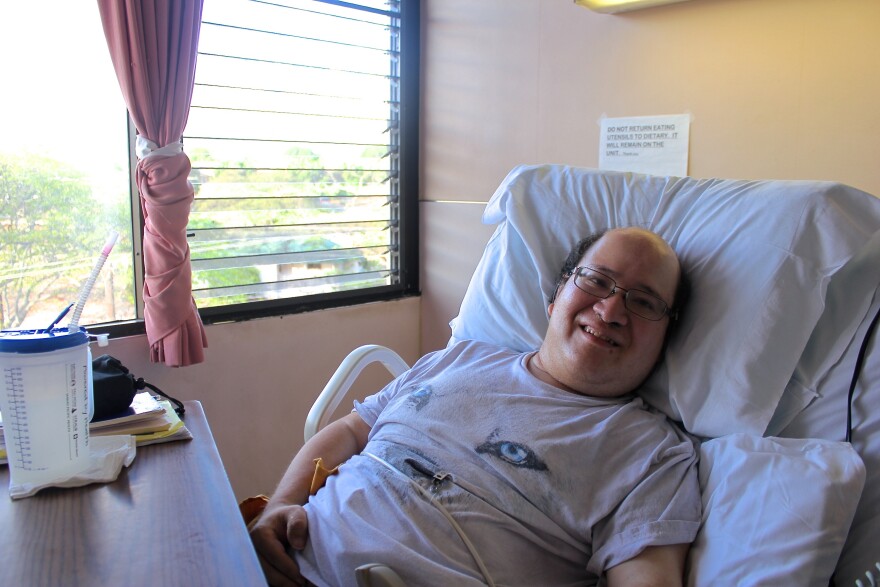Two hospitals serving some of Oahu's most vulnerable patients are in financial crisis. Leahi and Maluhia hospitals have frozen admissions and are cutting staff. They're also reducing the number of available beds by 25-percent, a decision that will have a broader impact for medical care around the island.

Chad Whitford says he’s lucky to get a room with a view, a mauka facing window that looks out to Palolo Valley. After a series of strokes ten years ago, he now spends most of his days confined to his bed at Leahi Hospital. “When I first had my stroke, they were the first ones willing to take me in on the spot,” said Whitford, who needs 24-hour care. Like many of the 155 long term patients, his family can’t afford a private nursing home and they can’t leave their jobs to care for him at home full time. But Leahi's financial crisis means it's no longer taking new patients.
“Families have been expressing the worry of where is my mother or father going to be placed,” said Derek Akiyoshi, the O‘ahu Region CEO. With as many as 94 percent of residents on Medicaid or Medicare, Akiyoshi says Leahi and Maluhia often serve as a last resort for the elderly or disabled. “We function as the safety net on the island of O‘ahu for certain long term care residents.” Akiyoshi says the reasons for the shortfall are complicated, but it boils down to money. Even after receiving $117 million from the legislature, the state hospital system will still be $50 million in the red this fiscal year.
“We’ve really reached this crisis point where we absolutely have no choice but to reduce services,” said Linda Rosen, the CEO of Hawai‘i Health Systems Corporation, the statewide network of public hospitals. O‘ahu is not the first to see reductions, two Big Island facilities have also cut services and announced layoffs. And Maui Memorial Medical Center recently received approval from the legislature to move towards privatization. “We’re really a bankrupt system already,” said Rosen. “It’s hard to imagine without additional funding, that we wouldn’t end up having to if not close services, even close facilities.”

But medical professionals say even though the financial situation is dire, closing the doors to new patients could have unintended consequences. “I think it’s a short sighted, quick-fix, kick the can down the road decision,” said Gary Okamoto, a Leahi Hospital board member and a physician who specializes in medical rehabilitation. He worries that reducing bed capacity and putting a freeze on new admissions will lead patients to fill up beds at acute hospitals instead, potentially straining facilities like Queens and Straub. “We will force the hospitals to keep patients in acute care beds, thereby decreasing the capacity of our hospitals to serve acutely injured or ill patients.”
Plans for a long-term financial solution for Hawaii's public hospitals remain uncertain. So does the timing of next steps —not only for policy makers and hospital staff, but also for patients like Chad Whitford. He only knows his next move is to a different floor.
“Actually I’m kind of in limbo,” said Whitford. “It’s pretty disturbing in a way.”





